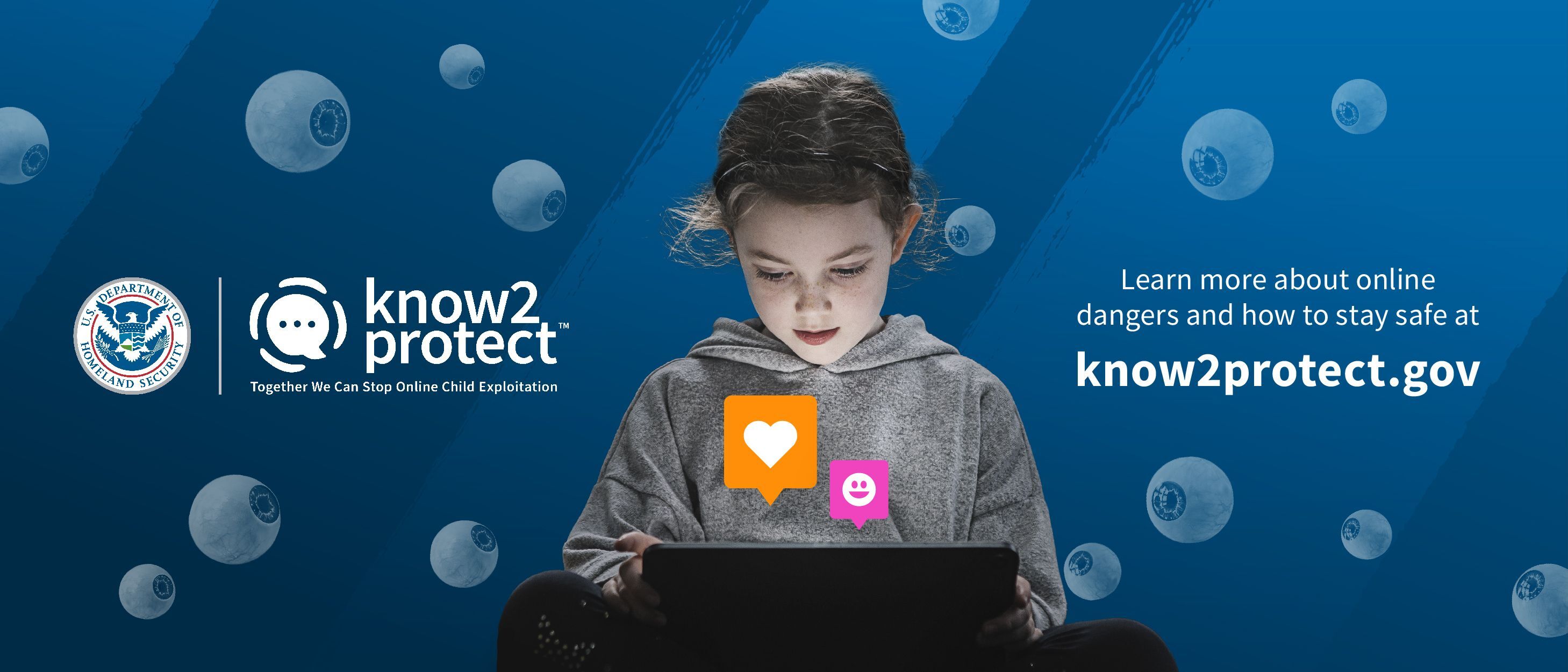
Know2Protect is a Department of Homeland Security national public awareness campaign to educate and empower children, teens, parents, trusted adults and policymakers to:
- Prevent and combat online child sexual exploitation and abuse.
- Explain how to report online enticement and victimization.
- Offer resources for victims and survivors and their supporters.
Learn more at: Know2Protect
Take Action
Understand the problem. Know the threats. Take action.
These are the three ways you can fight online child sexual exploitation and abuse (CSEA). Together, we can help prevent this crime and get victimized children and teens the support they need. The following sections explain how you can take an active role in protecting the kids you care about.
Have the Talk
It’s never too early to start talking to children and teens about the risks they face online and continue talking about them at every age. Like teaching a child how to safely cross the street, continuous discussions and reminders are key to safe online habits.
For younger children:
- Teach them not to click on pop-ups.
- Explain that they should never share passwords, addresses or personal information with people they don’t know online.
- Create a series of steps they should follow if they see inappropriate content, such as looking away and telling a parent or trusted adult.
- Warn them not to trust people they meet online, and tell them they should tell a trusted adult if someone makes them feel nervous, scared or uncomfortable.
- Teach online etiquette and how to be respectful of others, and let them know they should tell someone if they feel disrespected.
- Help them identify a trusted adult or guardian they can go to for help.
For tweens and teens:
- Talk about how they should never post personal information or inappropriate content.
- Discuss sexting and the permanency of online data.
- Teach them how to avoid online predators by setting up privacy controls on their devices, like restricting apps’ location access.
- Explain the warning signs that characterize online predators.
- Tell them that safe adults won’t ask them to keep secrets or disrespect their boundaries.
- Help them identify a trusted adult or guardian they can go to for help.
- Discuss steps they can take if a friend confides in them about inappropriate online interactions, such as telling a trusted adult or pointing them to Know2Protect resources.
- Explain that minors shouldn’t disseminate sexual abuse material because it’s illegal.
- Explain that even if they’ve already shared sexual abuse material or been involved in inappropriate online interactions, it’s not too late to tell an adult and get help.
- Discuss cyberbullying.
Top 10 Tips2Protect
- Start an open, two-way conversation with your child.
- Password-protect or control access to your child’s app store and gaming downloads.
- Set time and area limits for use of devices and set device check-in times.
- Set all apps, games and devices to private.
- Turn off location data services on social media and nonessential apps.
- Talk about data permanency. Online data can last a lifetime.
- Create a contract with your child regarding online behavior.
- Know your child’s friend lists. Remove strangers.
- Warn your child that they should never leave a game to chat with someone they don’t know on a different platform.
- Do not delete messages, images or videos from predators and do not forward any sexually explicit images or videos. Save usernames, screenshots and images or videos as evidence for law enforcement to collect directly from the device.
Download the Top 10 Tips2Protect PDF to print at home.






